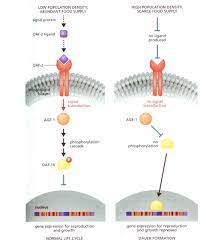Research Hgh For Patients Over 60
HGH For Patients Over 60 Research and Outcomes
While Human Growth Hormone Therapy has been used for decades, its therapeutic use among older men and women has undergone limited thorough study. It's widely prescribed by HRT Clinics and Wellness Professionals for treating waning HGH Levels due to Somatopause, but traditional medical research is just catching up.
IGF-1Critical HGH Metabolite
Human Growth Hormone has a powerful and direct influence on physiological function, but most benefits provided by HGH are due to Insulin-Like Growth Factor-1. Growth Hormone circulates to the liver, where it is broken down into IGF-1.
IGF-1 is responsible for several essential functions. It bolsters muscle mass, strengthens bones, and plays a vital role in maintaining energy levels by unlocking energy from body fat.
What Causes IGF-1 Levels to Decline in Older Adults?
As men and women age, the risk of HGH Deficiency looms, leading to a reduction in IGF-1 Activity. This decline begins around thirty, but the risk of clinical deficiency increases dramatically by age sixty. Human Growth Hormone Deficiency is characterized by several symptoms impacting the quality of  life.
life.
Common symptoms include weight gain, muscle atrophy, fatigue, loss of bone mineral density, depression, and fat build-up. It's clear that Growth Hormone Deficiency harms wellness and long-term health outcomes, but research regarding the benefits of HGH in aging populations is relatively scant.
HGH Therapy Study Investigates Potential Benefits for Older Patients
A recent study investigated the benefits of HGH in men over sixty. Twenty-one men were recruited for this study, with twelve receiving HGH Injections three times per week. Both groups had their IGF-1 concentrations evaluated monthly, along with other factors, including Bone Mineral Density, skin health, adipose fat volume, and lean muscle mass.
By the end of the study, men taking HGH saw real benefits compared to the control group. IGF-1 Levels increased significantly to between 500-1500 Units per Liter. They experienced an increase in Bone Density of around 1.6% in the vertebrae, a 14.4% reduction in body fat, and an 8.8% increase in muscle mass.
Potential Side-Effects and Risks of HGH Therapy
While HGH Injections are often prescribed for older patients with Low HGH Levels, it's essential to recognize the potential risk. There are some heart concerns, including arrhythmia and cardiomegaly. HGH use may also exacerbate insulin resistance in sensitive individuals.
It is critical to only prescribe Growth Hormone in concentrations that restore normal HGH Baseline because these risks increase dramatically with high doses. In this study, the only side-effect noted was a slight increase in systolic pressure and fasting blood sugar.
- 0001 Natural Hormone Replacement Abc News 13 [Last Updated On: October 25th, 2025] [Originally Added On: October 2nd, 2020]
- 0002 My Own Experience With Human Growth Hormone Case Study [Last Updated On: February 10th, 2025] [Originally Added On: October 3rd, 2020]
- 0003 Ipamorelin Alternative To Hgh Injection Therapy [Last Updated On: February 10th, 2025] [Originally Added On: October 4th, 2020]
- 0004 Human Growth Hormone Therapy For Adult Hgh Deficiency Do The Benefits Stack Up [Last Updated On: February 2nd, 2025] [Originally Added On: October 5th, 2020]
- 0005 Human Growth Hormone Rehabilitation Benefits [Last Updated On: June 1st, 2025] [Originally Added On: October 6th, 2020]
- 0006 HRT [Last Updated On: May 5th, 2025] [Originally Added On: October 7th, 2020]
- 0007 Hormone Replacement Therapy With Pellet Implants [Last Updated On: May 4th, 2025] [Originally Added On: October 8th, 2020]
- 0008 Omnitrope Bio-identical HGH Injections [Last Updated On: February 2nd, 2025] [Originally Added On: October 9th, 2020]
- 0009 Imported Human Growth Hormone Is Illegal In The United States [Last Updated On: February 1st, 2025] [Originally Added On: October 10th, 2020]
- 0010 Igf-1 Stimulates The Growth Of Motor Neurons In The Brain [Last Updated On: June 2nd, 2025] [Originally Added On: October 11th, 2020]
- 0011 Estrogen Hormone Replacement Therapy May Diminish Alzheimers Disease Risk [Last Updated On: February 1st, 2025] [Originally Added On: October 12th, 2020]
- 0012 The Potential Benefits Of Estrogen On Alzheimer's Risk [Last Updated On: January 31st, 2025] [Originally Added On: October 13th, 2020]
- 0013 Dr. Hotze Talks About A Natural Solution For Depression. [Last Updated On: October 27th, 2025] [Originally Added On: October 14th, 2020]
- 0014 Anastrozole Research Study [Last Updated On: January 30th, 2025] [Originally Added On: October 15th, 2020]
- 0015 Symptoms Of Hormonal Imbalance In Women: What To Look For [Last Updated On: March 15th, 2025] [Originally Added On: May 12th, 2021]
- 0016 Beware of Fake Hormone Booster Pills – Sign Up for the Real Deal [Last Updated On: February 27th, 2025] [Originally Added On: December 21st, 2022]
- 0017 Chronic Fatigue versus Hormone Deficiency: How Can Patients and Doctors Tell the Difference? [Last Updated On: April 9th, 2025] [Originally Added On: January 18th, 2023]
- 0018 Ipamorelin: A Safer, Cost-Effective Alternative to HGH Therapy [Last Updated On: February 13th, 2025] [Originally Added On: February 13th, 2025]
- 0019 Treatment of Hormone Deficiencies [Last Updated On: February 15th, 2025] [Originally Added On: February 15th, 2025]
Word Count: 429






